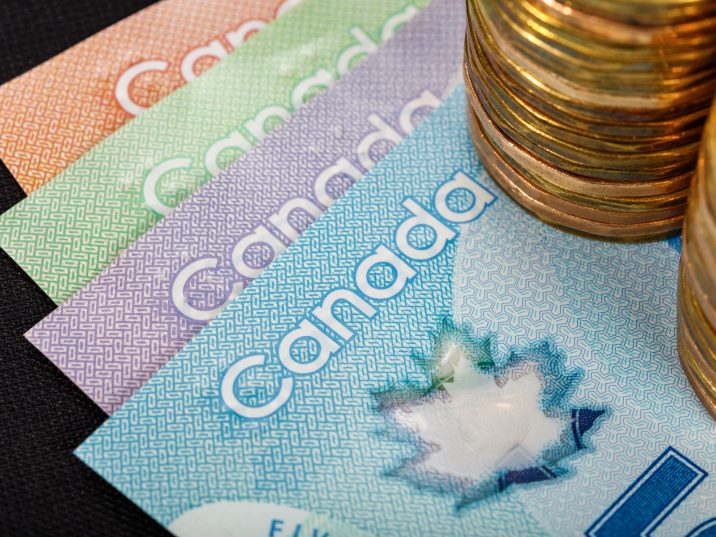You are here
Home 🌿 Recreational Marijuana News 🌿 Recreational cannabis isn't the cash cow the government hoped for 🌿Recreational cannabis isn't the cash cow the government hoped for

This month the federal government sent the first cannabis excise tax payments to the provinces. But almost none of the amounts was disclosed. That’s likely because the cheques were smaller than officials had expected. But perhaps it’s also because medical cannabis clients think the taxes are unfair.
British Columbia is the only province so far to disclose its excise tax revenues: $1.3 million for October to December 2018. It had expected $50 million total this fiscal year, but now will be lucky to get $3 million. Other provinces haven’t disclosed their receipts. Manitoba didn’t even mention cannabis revenues in last week’s budget.
We can, however, estimate pot tax revenues using other data. First consider the federal government’s share.
Health Canada data shows producers sold 20.3 tonnes of medical cannabis last quarter. They also apparently shipped 42 tonnes of recreational cannabis to distributors. The federal cannabis excise tax portion is $0.25 per gram or 2.5 per cent of wholesale value, whichever is higher. This implies Ottawa received some $16 million in excise taxes last quarter. During that period, Statistics Canada says legal cannabis sales totalled $307 million. The five-per-cent federal goods and services tax would have generated $15 million from that. This suggests Ottawa earned about $31 million in GST and excise taxes on cannabis last quarter.
Figures suggest Ottawa earned about $31 million last quarter
Estimating provincial revenues is trickier, as only recreational sales are broken down by province. But Health Canada reports medical shipments by province. Those can serve as rough indicators of sales.
For example, Nova Scotia sold $17.2 million of recreational cannabis last quarter, or 11 per cent of Canada’s total. Its most recent medical cannabis shipments represented four per cent of the national total. That implies medical sales were around $6.3 million. The province’s excise tax is $0.75 per gram or 7.5 per cent of value, while its harmonized sales tax share is 10 per cent. These imply Nova Scotia received roughly $6.2 million in excise and sales taxes.
Below are similar estimates for each province:

Adding the federal and provincial numbers gives a Canada-wide total of some $96 million. That’s $62 million from excise taxes and $34 million from sales taxes. Put another way, $59 million came from recreational cannabis and $37 million from medical.
The latter number is controversial. Both users and producers of medical cannabis argue it should be tax-free like regular medicines. They feel it’s unfair to tax products that help with such ailments as epilepsy. But governments worry tax exemptions could tempt recreational users. Some might switch to medical products to save money.
Here’s a potential compromise: remove excise and sales taxes on medical purchases, but only for cannabis oils. Dry (smoke-able) cannabis would remain taxable, as would cannabis edibles when they eventually arrive.
Here's a potential compromise: remove excise and sales taxes on medical purchases, but only for cannabis oils
This could work because medical and recreational users have different preferences. Last quarter, 74 per cent of medical purchases involved oils. Conversely, 72 per cent of recreational sales involved dry cannabis.
So, exempting cannabis oil medical sales would help most medical clients while tempting few recreational consumers. The federal government could include this change in its budget presentation on March 19.
At the same time, Ottawa should simplify its ungainly excise tax structure. Currently, producers deal with 13 different tax stickers and eight different tax formulas. The appropriate sticker and formula depends on shipping destinations and/or product values. If customer orders change and products get rerouted, the stickers and calculations must be redone.

Pedestrians pass a Cannabis NB store in Saint John, N.B., on Oct. 14, 2018, three days before the legalization of recreational marijuana in Canada. Andrew Vaughan/CP
Finally, the federal and provincial governments should delete the $1 per gram minimum combined excise tax and simply charge 10 per cent of value. This would make it easier for legal vendors to offer value-priced products. That’s important for competing against black market prices averaging just $6.51 per gram, as per a StatCan report released last week. At the end of 2018, black market sales still accounted for 80 per cent of Canadian recreational cannabis purchases. Streamlining the tax regime, and lowering the cost of the legal product, will be an important part of driving that share down.
420 Intel is Your Source for Marijuana News
420 Intel Canada is your leading news source for the Canadian cannabis industry. Get the latest updates on Canadian cannabis stocks and developments on how Canada continues to be a major player in the worldwide recreational and medical cannabis industry.
420 Intel Canada is the Canadian Industry news outlet that will keep you updated on how these Canadian developments in recreational and medical marijuana will impact the country and the world. Our commitment is to bring you the most important cannabis news stories from across Canada every day of the week.
Marijuana industry news is a constant endeavor with new developments each day. For marijuana news across the True North, 420 Intel Canada promises to bring you quality, Canadian, cannabis industry news.
You can get 420 Intel news delivered directly to your inbox by signing up for our daily marijuana news, ensuring you’re always kept up to date on the ever-changing cannabis industry. To stay even better informed about marijuana legalization news follow us on Twitter, Facebook and LinkedIn.




